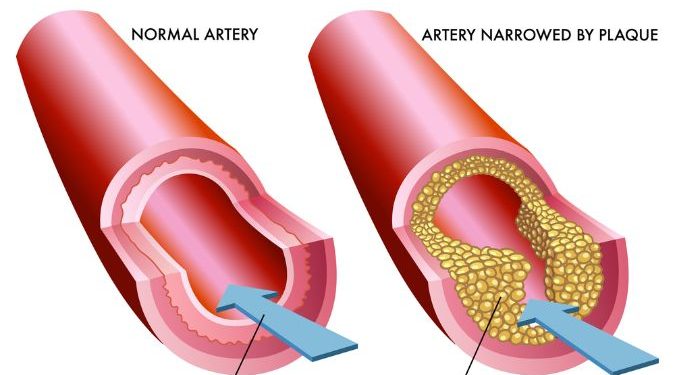Atherosclerosis is a condition that makes your arteries narrow and hard to get blood through. This can cause problems such as a heart attack or stroke. The condition usually begins slowly and may not cause any symptoms until it becomes worse.
It can start in any artery, including the arteries that supply blood to your heart and legs. It may also affect the arteries that carry blood to your brain and kidneys. The condition can be caused by a buildup of fats, cholesterol, and calcium called plaque that blocks blood flow.
Symptoms can include pain or pressure in the chest, neck, arms or legs when you exercise, or a sudden shortness of breath or weakness. If you have symptoms, call your doctor right away.
There are several types of atherosclerosis and each type can cause different symptoms. Some people with diabetes may have mild or no symptoms, but others may develop serious problems that require treatment. The symptoms of atherosclerosis depend on the type and amount of plaque that builds up in your arteries, and how quickly it forms and grows.
If you have a large amount of plaque in your arteries, you may feel chest pain (angina) or a feeling that your heart is beating too fast. You might also have a headache or dizziness that isn’t relieved by any medication. Other symptoms may include swelling or fluid in your legs, a cough that doesn’t go away, or problems with your breathing.
Your doctor can diagnose atherosclerosis with a physical exam and by listening to your arteries. You might need to see a specialist, such as a cardiologist or vascular surgeon.

The first thing your doctor will look for is the presence of plaques in your arteries. These plaques can block your blood flow and make it hard for your body to get oxygen and nutrients from your heart to the rest of your body.
They can also lead to blood clots or other complications, such as heart failure and a stroke. Getting regular checkups, eating a healthy diet and exercising regularly can help to prevent these problems.
Atherosclerosis can be treated with medication and lifestyle changes, such as cutting down on your salt intake and adding more physical activity to your daily routine. These treatments can slow or stop plaque buildup in your arteries. They can also help lower your risk of heart attacks and other heart problems, such as high blood pressure.
Glucose is an essential metabolic substrate that provides energy to your cells and allows them to perform their normal functions. It also helps your immune system fight infection and regulates the body’s growth and development.
Your body produces insulin to control the level of glucose in your blood. If you have diabetes, your body does not produce enough insulin. Your doctor can prescribe medications to help your body use the insulin it makes.
If you have diabetes, you have a higher risk of developing atherosclerosis than people who don’t have the disease. This is because your body’s cells are more likely to be damaged by a buildup of plaque in your arteries. Your doctor might recommend that you take medication to prevent or treat this condition, such as a statin or a fatty acid-lowering drug like atorvastatin or simvastatin. You can also reduce your risk of having a heart attack or stroke by following an eating plan that helps your body maintain a healthy weight and avoid foods that are high in cholesterol or saturated fat.









